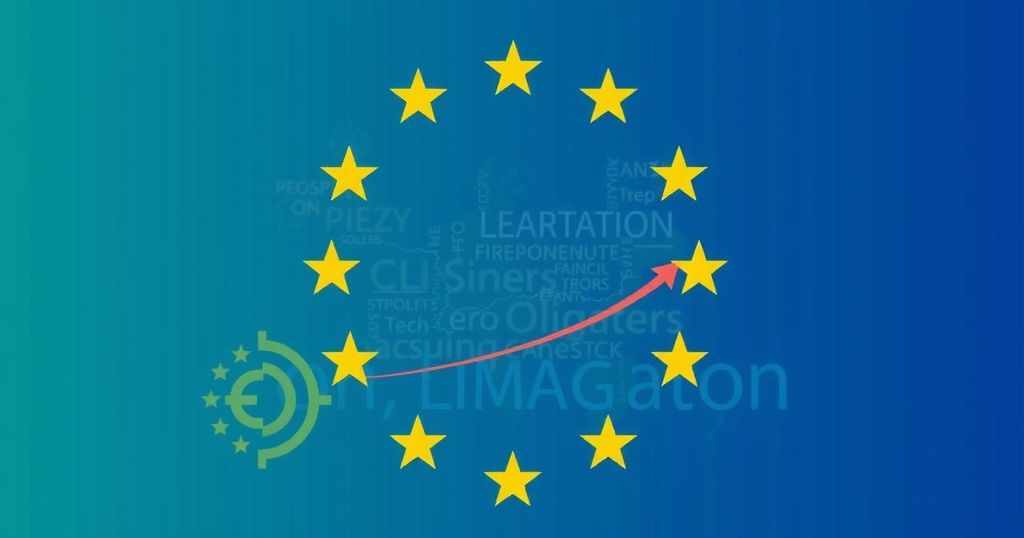The EU increased its financial offer to developing nations to $300 billion annually amid COP29 negotiations in Baku, responding to earlier rejections of a $250 billion offer. Discussions focus on the need for significant funding and fossil fuel phase-outs, with calls for accountability from wealthy nations. Irish Minister Eamon Ryan expresses hope for an agreement, while developing countries demand higher funding to meet their urgent climate needs.
The European Union has increased its financial offer to assist impoverished nations severely impacted by climate change, raising the proposed amount to $300 billion annually. This adjustment comes amid urgent negotiations at the COP29 conference in Baku, where talks have been fraught with tension, and developing countries previously rejected an earlier offer of $250 billion per year by 2035 as inadequate. Following intense discussions, the EU’s revised proposal aims to rekindle momentum in negotiations that are perceived to be on the verge of failure.
Negotiators worked through the night in a challenging setting, seeking a common ground to address the needs of developing countries amid a record-setting year for global temperatures. Key factors include the EU’s desire for annual assessments of efforts to phase out fossil fuels, which has encountered resistance from major oil-exporting nations like Saudi Arabia. Reports suggest that some wealthy nations, including the United States and the United Kingdom, may also be seeking ways to limit direct funding for climate assistance due to internal political pressures.
Irish Climate Minister Eamon Ryan expressed cautious optimism regarding the ongoing negotiations, underscoring the importance of achieving a viable agreement to restore hope in multilateral efforts to combat climate change. Meanwhile, Ali Mohamed, representing the African Group of Negotiators, warned that failure to make meaningful progress could lead to the collapse of the COP discussions entirely. A coalition of over 300 non-governmental organizations has similarly urged developing nations to resist inadequate offers, emphasizing the dire consequences of a potential agreement that falls short of their needs.
Ultimately, the groundwork has been laid for a significant increase in funding to combat climate-related challenges, aiming for an overarching goal of $1.3 trillion annually, with a noticeable portion expected from private investments. However, this still contrasts sharply with demands from developing nations, who argue that any proposed increases do not adequately consider inflation, particularly given the escalating climate crisis that threatens billions of lives worldwide.
The ongoing negotiations at COP29, held in Baku, are critical for addressing climate change financing. Wealthy nations have been under pressure to increase their financial commitments to assist developing countries, which are disproportionately affected by climate change. Recent discussions have indicated a significant divide between the expectations of developing nations and the offerings presented by wealthier countries. The backdrop of intense global scrutiny on climate action and the realities of various political climates in donor nations complicate the situation, making it imperative to find a resolution that balances ambition and practicality.
The EU’s increased offer marks a pivotal moment in the COP29 negotiations, highlighting the urgent need for substantial financial support to address the climate crisis faced by developing nations. As discussions continue, the calls for a comprehensive and enforceable climate finance agreement remain paramount. The outcome will considerably influence international collaboration on this global issue and the paths forward for both developing and developed nations in their climate actions.
Original Source: www.rfi.fr






